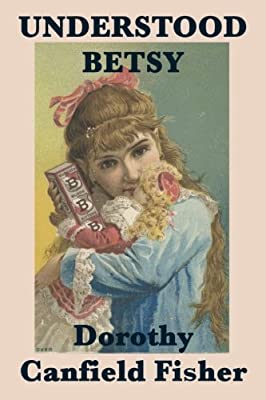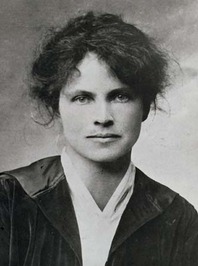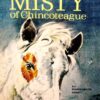Understood Betsy by Dorothy Canfield

A 1916 novel for children.
The story tells of Elizabeth Ann who is a 9-year-old orphan girl. She goes from a sheltered existence with her father’s aunt Harriet and cousin Frances in the city, to living on a Vermont farm with her mother’s family, the Putneys. This family is the family whose child-rearing practices had always seemed suspect to Harriet and her daughter. In her new rural life, Elizabeth Ann comes to be nicknamed “Betsy”. Betsy finds that many activities that Frances had always thought too demanding for a little girl are considered by this Putney family routine activities for a child. Walking to school alone, cooking, and having household duties to perform were all considered normal.
Betsy thrives in her new environment. She is learning to make butter, boil maple syrup, and tend to the animals. Betsy also loves to read to herself and to her family. When Frances announces she is to be married and has come to “save” Elizabeth Ann from the dreaded Putney cousins, she is amazed to discover that the little girl is quite content to stay.

This little lovely read is amazing for several reasons. One, it is still relevant to kids reading it today. The thing that I loved the most is that a child was listened to and respected, that is not written enough in old classics. The orphan was WANTED. This also not a usual happening in books. Just a really lovely story. So much HOPE. All the historical details are very interesting and I can see why this particular book is used in classical learning settings. Just sweet. I highly recommend reading it.

Dorothy Canfield Fisher (February 17, 1879 – November 9, 1958) was an educational reformer, social activist, and best-selling American author in the early decades of the twentieth century. She strongly supported women’s rights, racial equality, and lifelong education. Eleanor Roosevelt named her one of the ten most influential women in the United States. In addition to bringing the Montessori method of child-rearing to the U.S., she presided over the country’s first adult education program and shaped literary tastes by serving as a member of the Book of the Month Club selection committee from 1925 to 1951.


